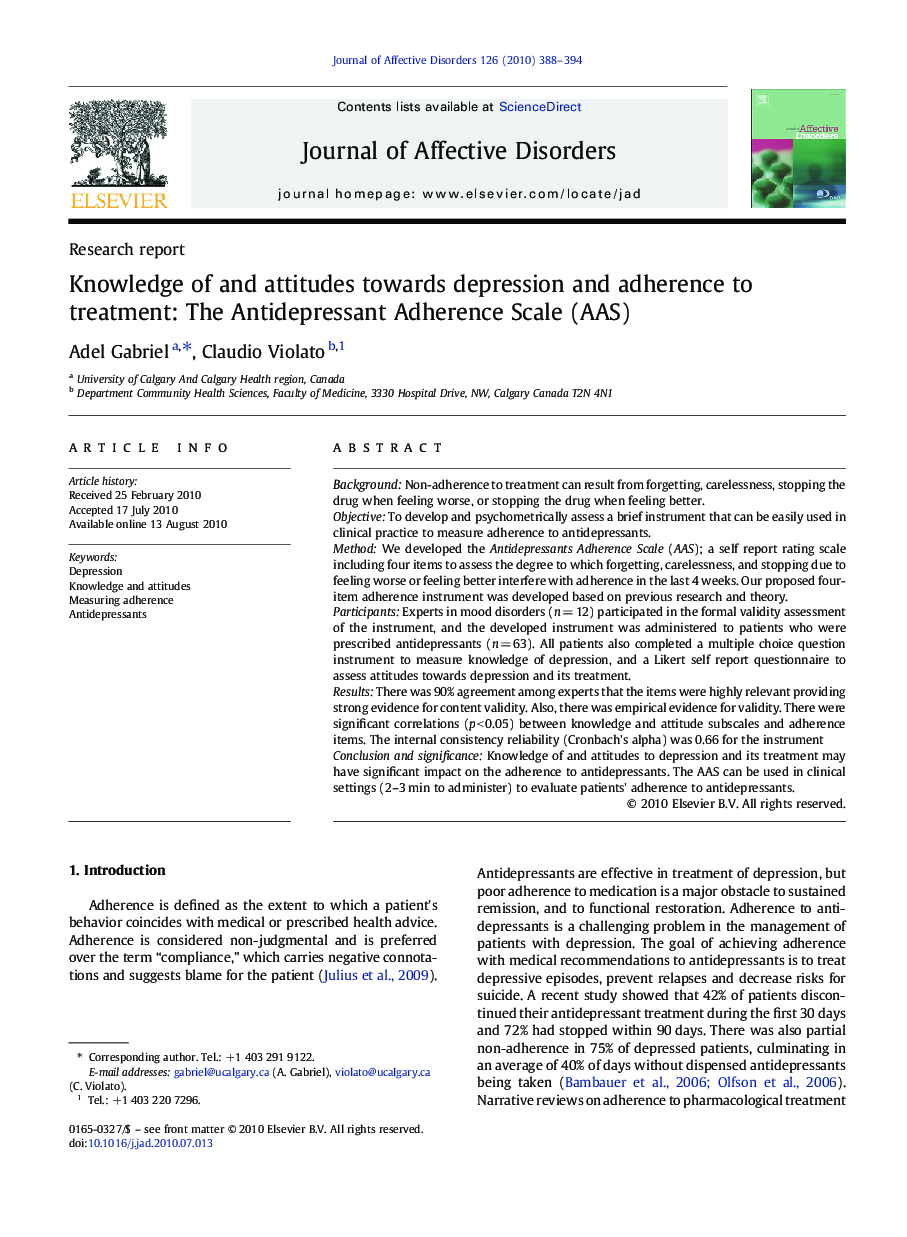| Article ID | Journal | Published Year | Pages | File Type |
|---|---|---|---|---|
| 4186674 | Journal of Affective Disorders | 2010 | 7 Pages |
BackgroundNon-adherence to treatment can result from forgetting, carelessness, stopping the drug when feeling worse, or stopping the drug when feeling better.ObjectiveTo develop and psychometrically assess a brief instrument that can be easily used in clinical practice to measure adherence to antidepressants.MethodWe developed the Antidepressants Adherence Scale (AAS); a self report rating scale including four items to assess the degree to which forgetting, carelessness, and stopping due to feeling worse or feeling better interfere with adherence in the last 4 weeks. Our proposed four-item adherence instrument was developed based on previous research and theory.ParticipantsExperts in mood disorders (n = 12) participated in the formal validity assessment of the instrument, and the developed instrument was administered to patients who were prescribed antidepressants (n = 63). All patients also completed a multiple choice question instrument to measure knowledge of depression, and a Likert self report questionnaire to assess attitudes towards depression and its treatment.ResultsThere was 90% agreement among experts that the items were highly relevant providing strong evidence for content validity. Also, there was empirical evidence for validity. There were significant correlations (p < 0.05) between knowledge and attitude subscales and adherence items. The internal consistency reliability (Cronbach's alpha) was 0.66 for the instrumentConclusion and significanceKnowledge of and attitudes to depression and its treatment may have significant impact on the adherence to antidepressants. The AAS can be used in clinical settings (2–3 min to administer) to evaluate patients' adherence to antidepressants.
